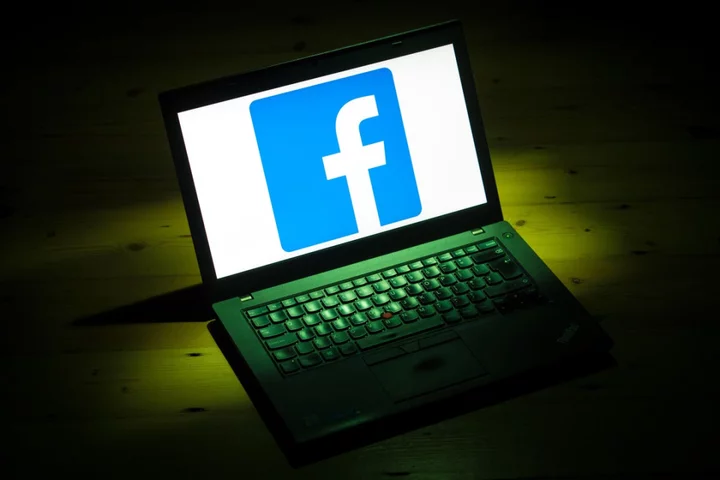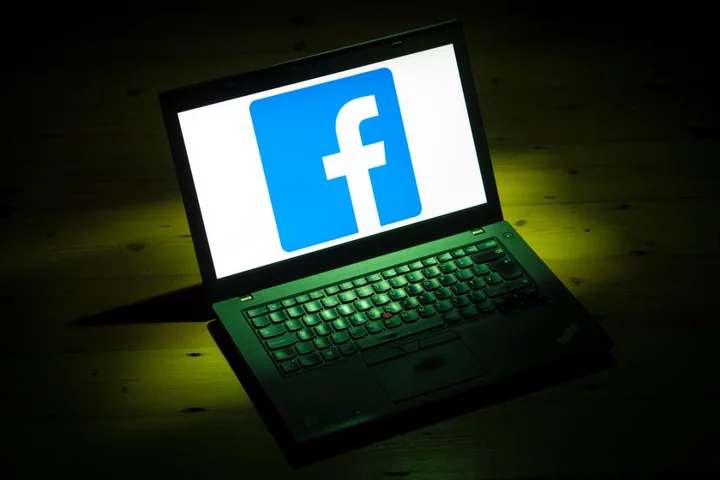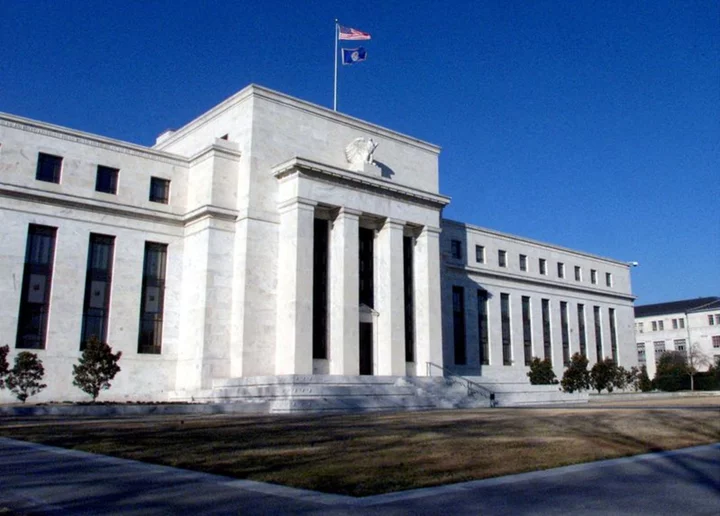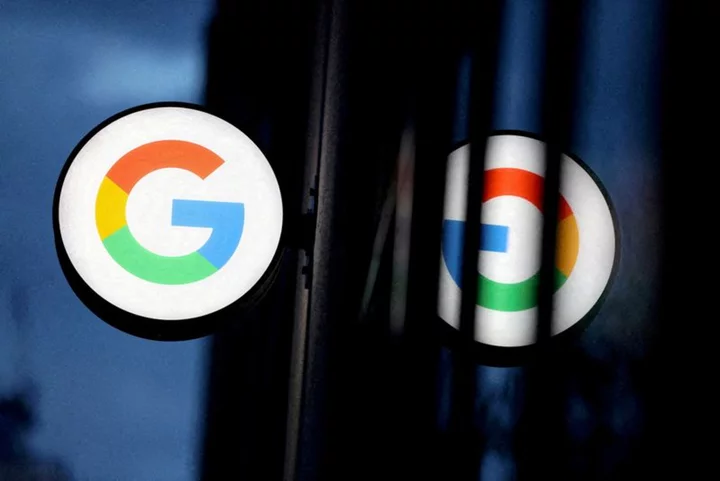
Oxford scientists find no evidence to suggest Facebook not good for wellbeing
There is no evidence to suggest using Facebook is detrimental to wellbeing, Oxford scientists have said, challenging the view that the social media platform is linked to psychological harm. Researchers from the University’s Oxford Internet Institute analysed data from nearly a million people across 72 countries over 12 years – in the largest study of its kind – to understand more about the impact of Facebook on wellbeing. Professor Andrew Przybylski, who co-led the research published in the journal Royal Society Open Science, said: “We examined the best available data carefully – and found they did not support the idea that Facebook membership is related to harm – quite the opposite. “In fact, our analysis indicates Facebook is possibly related to positive well-being.” The research looked at Facebook data from 2008 to 2019, going back to when the platform was in its early stages. “We examined 72 countries’ per capita active Facebook users in males and females in two age brackets, 13-34 years and 35+ years,” the researchers said. The results also showed the association between using Facebook and wellbeing was slightly more positive for males as well as for younger people. Writing in the research paper, the authors said: “Although reports of negative psychological outcomes associated with social media are common in academic and popular writing, evidence for harms is, on balance, more speculative than conclusive.” Professor Matti Vuorre, also of the Oxford Internet Institute, who co-led the study, said: “Our findings should help guide the debate surrounding social media towards more empirical research foundations. “We need more transparent collaborative research between independent scientists and the technology industry to better determine how, when and why modern online platforms might be affecting their users.” Commenting on the study, Peter Etchells, professor of psychology and science communication at Bath Spa University, said: “This is a fascinating study that attempts to link Facebook uptake with measures of mental wellbeing in a broad-strokes manner, using data from over 70 countries. “Contrary to popular sentiment, the researchers didn’t find a negative association between the two; instead, it was generally the case that there were positive associations between country-level Facebook uptake and mental wellbeing. “To my mind, the value in this study lies in proof of principle – it demonstrates that it’s possible to leverage industry data to address meaningful questions about how digital technology interacts with our mental health.” But Prof Etchells said there were some caveats associated with the findings – which the study authors have addressed. He said: “This is a descriptive study, and as such cannot tell us anything about causation – that is, we don’t know how, if, or to what extent, changes in Facebook adoption drive changes in mental wellbeing. “Wellbeing is a complex phenomenon, and even in the context of social media use, we need to be careful drawing any firm conclusions by looking at how people use a single platform such as Facebook.” Read More Move fast and beat Musk: The inside story of how Meta built Threads Japan's tech investor SoftBank trims losses and promises offensive turnaround Chatbots sometimes make things up. Not everyone thinks AI's hallucination problem is fixable Charity boss speaks out over ‘traumatic’ encounter with royal aide Ukraine war’s heaviest fight rages in east - follow live
2023-08-09 11:55

Superconductor Stocks Drop in Korea Amid Doubts on Breakthrough
South Korean stocks that had skyrocketed on perceived links to superconductors fell for a second day Wednesday after
2023-08-09 10:46

Ozzy Osbourne PlayStation tweet which failed to reveal link to Sony banned
A tweet by Ozzy Osbourne showing him gaming on a Sony PlayStation VR2 has been banned for failing to mention that it was an ad. The tweet from Osbourne’s account in February read: “Did this spot with @PlayStation team. We had a lot of fun. Their new VR2 is really amazing.” The tweet included a video which began with a blue screen displaying the PlayStation logo before cutting to Osbourne in a living room taking a virtual reality headset and controllers out of a blue PlayStation box as his wife Sharon Osbourne told him that they needed to pack boxes and catch a flight to England. Osbourne replied that he wanted to play on his PlayStation and was shown swearing at dinosaurs via a VR headset and controllers before the video ended with the text: “Play has no limits,” followed by the PlayStation logo. We considered the wording, including the use of the word spot to refer to the video, was not sufficient to clearly indicate to consumers that the tweet was part of a commercial relationship between Sony and Ozzy Osbourne Advertising Standards Authority Sony, which responded to the Advertising Standards Authority (ASA) on both their and Osbourne’s behalf, said their agreement gave Osbourne’s management company final approval over the video’s script. The tech giant confirmed that Osbourne was contracted to post a tweet sharing the video as part of the agreement, with Sony specifying only that Osbourne must share the video in a way which clearly disclosed that he had worked with Sony. Addressing the tweet itself, Sony believed that the word “spot” in the text “Did this spot with the @PlayStation team” would be clearly understood by Twitter users to refer to an ad. They also believed that the placement of the wording at the beginning of the tweet meant it was sufficiently prominent for consumers to understand the commercial nature of the video before they watched it. The ASA said consumers should be made aware that a post was an ad before they engaged with it. The watchdog said: “We acknowledged the positioning of that wording in the tweet was both prominent and visible before the video started playing. “However, we considered the wording, including the use of the word spot to refer to the video, was not sufficient to clearly indicate to consumers that the tweet was part of a commercial relationship between Sony and Ozzy Osbourne and that the tweet was therefore an ad.” It added: “Because the ad did not make clear its commercial intent upfront, we considered it was not obviously identifiable as a marketing communication and concluded that it breached the Code.” It ruled that the ad must not appear again in the form complained about. Read More Charity boss speaks out over ‘traumatic’ encounter with royal aide Ukraine war’s heaviest fight rages in east - follow live No evidence to suggest Facebook not good for wellbeing, Oxford scientists say Harry and Meghan ring young online innovators after funding awards James Bulger’s mother condemns ‘disgusting’ AI clips on TikTok of murdered son
2023-08-09 07:58

No evidence to suggest Facebook not good for wellbeing, Oxford scientists say
There is no evidence to suggest using Facebook is detrimental to wellbeing, Oxford scientists have said, challenging the view that the social media platform is linked to psychological harm. Researchers from the University of Oxford’s Oxford Internet Institute analysed data from nearly a million people across 72 countries over 12 years – in the largest study of its kind – to understand more about the impact of Facebook on wellbeing. Professor Andrew Przybylski, who co-led the research published in the journal Royal Society Open Science, said: “We examined the best available data carefully – and found they did not support the idea that Facebook membership is related to harm – quite the opposite. “In fact, our analysis indicates Facebook is possibly related to positive well-being.” The research looked at Facebook data from 2008 to 2019, going back to when the platform was in its early stages. “We examined 72 countries’ per capita active Facebook users in males and females in two age brackets, 13-34 years and 35+ years,” the researchers said. The results also showed the association between using Facebook and wellbeing was slightly more positive for males as well as for younger people. It was generally the case that there were positive associations between country-level Facebook uptake and mental wellbeing Prof Peter Etchells Writing in the research paper, the authors said: “Although reports of negative psychological outcomes associated with social media are common in academic and popular writing, evidence for harms is, on balance, more speculative than conclusive.” Professor Matti Vuorre, also of the Oxford Internet Institute, who co-led the study, said: “Our findings should help guide the debate surrounding social media towards more empirical research foundations. “We need more transparent collaborative research between independent scientists and the technology industry to better determine how, when and why modern online platforms might be affecting their users.” Commenting on the study, Peter Etchells, professor of psychology and science communication at Bath Spa University, said: “This is a fascinating study that attempts to link Facebook uptake with measures of mental wellbeing in a broad-strokes manner, using data from over 70 countries. “Contrary to popular sentiment, the researchers didn’t find a negative association between the two; instead, it was generally the case that there were positive associations between country-level Facebook uptake and mental wellbeing. “To my mind, the value in this study lies in proof of principle – it demonstrates that it’s possible to leverage industry data to address meaningful questions about how digital technology interacts with our mental health.” But Prof Etchells said there were some caveats associated with the findings – which the study authors have addressed. He said: “This is a descriptive study, and as such cannot tell us anything about causation – that is, we don’t know how, if, or to what extent, changes in Facebook adoption drive changes in mental wellbeing. “Wellbeing is a complex phenomenon, and even in the context of social media use, we need to be careful drawing any firm conclusions by looking at how people use a single platform such as Facebook.” Read More Charity boss speaks out over ‘traumatic’ encounter with royal aide Ukraine war’s heaviest fight rages in east - follow live Ozzy Osbourne PlayStation tweet which failed to reveal link to Sony banned Harry and Meghan ring young online innovators after funding awards James Bulger’s mother condemns ‘disgusting’ AI clips on TikTok of murdered son
2023-08-09 07:48

Amazon In Talks to Be Anchor Investor in Arm IPO, Reuters Says
Amazon.com Inc. is in talks to join other tech companies as an anchor investor in Arm Ltd.’s initial
2023-08-09 06:58

iPhone users will soon have to adjust to this small but significant change
Get your thumb ready for next month. Apple is making a subtle change to the iPhone's software that will likely mess with your muscle memory: The big red "end call" button is moving.
2023-08-09 06:58

US Set to Limit Scope of China Investment Ban With Revenue Rule
A US plan to restrict investment in China is likely to apply only to Chinese companies that get
2023-08-09 05:59

Bitcoin Miner Marathon’s Quarterly Loss Narrows, Revenue Jumps
Marathon Digital Holdings Inc.’s second-quarter loss narrowed and revenue jumped as the Bitcoin miner increased sales of the
2023-08-09 05:16

US Fed clarifies process for banks to transact in stablecoins
By Hannah Lang (Reuters) -State banks that are a member of the U.S. Federal Reserve system should obtain a written
2023-08-09 04:58

Google makes emergency request to block Texas antitrust lawsuit move
By Diane Bartz WASHINGTON Google asked a U.S. appeals court in New York on Tuesday to pause a
2023-08-09 04:50

US Warned Japan of China Hacking Defense Networks, Officials Say
The US warned Japan over the course of a year that Chinese state hackers had infiltrated its defense
2023-08-09 04:46

Take-Two Rises After Management Predicts Big 2024 Performance
Take-Two Interactive Software Inc., the company behind video games like Grand Theft Auto, rose in extended trading after
2023-08-09 04:46
